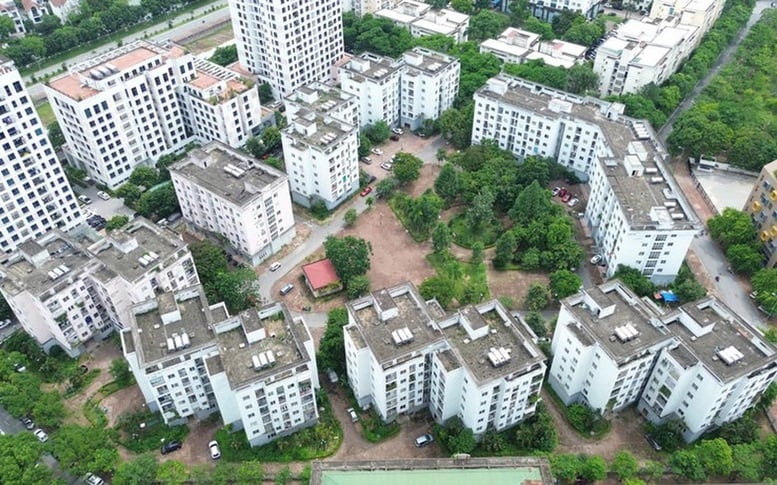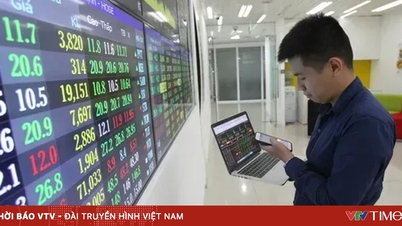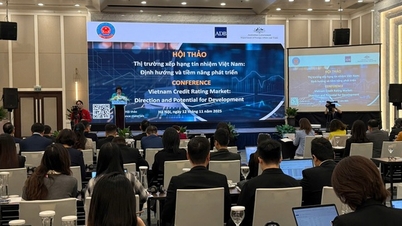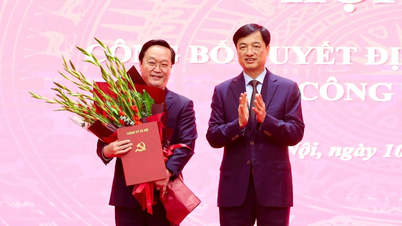
Prime Minister Pham Minh Chinh , Head of the Central Steering Committee on housing policy and real estate market, chaired the 3rd meeting of the Steering Committee - Photo: VGP/Nhat Bac
In the context of Vietnam's real estate market, the Prime Minister 's direction does not stop at technical measures, but touches on institutional thinking and development ethics.
According to the Prime Minister, housing policy must be seen as a social commitment - a direct reflection of the quality of national governance. Housing is to serve the majority of people, it cannot become a tool for speculation or profiteering. Collusion and wrongful approval of subjects in social housing development must be dealt with immediately and strictly, because it is not only an economic violation but also a betrayal of the humane spirit of the policy.
At the same time, he requested to simplify administrative procedures to the maximum so that people no longer have to "go around in circles", wasting time and money for their basic right to legally settle down. The assignment to each ministry, branch, and locality must be clear about the people, the work, the progress, the responsibilities, the authority, and the products so that the policy goes into reality and does not stop at slogans.
These guidelines clearly demonstrate the results management and sustainable development thinking that the Government is pursuing. In this regard, the real estate market is not just for profit, but a social ecosystem - where trust, fairness and policy discipline must be re-established. A healthy market must be built on a foundation of social trust, not on asset bubbles.
The lessons from many major economies are a costly warning; they demonstrate that when the housing market moves away from real demand, the consequences are not only economic decline but also a crisis of confidence.
Therefore, the Prime Minister's conclusion at this meeting has special significance .
That message is not just an administrative directive, but a new institutional vision - towards a healthy, humane and sustainable real estate market.

A social housing project in Viet Hung ward, Hanoi city
Strategic directions from the Prime Minister's conclusions
The meeting on November 11 did not simply summarize the situation, but opened a long-term development thinking framework for Vietnam’s housing policy. In particular, five strategic orientations stood out.
First, housing is the pillar of social security and stability. In a middle-income country, ensuring that every family can own or rent a suitable home is not only an economic goal, but also a commitment to social justice. When housing becomes out of reach, trust in the institution is also eroded. Therefore, negativity and profiteering in social housing development must be resolutely eliminated - returning the original humanistic meaning of the policy.
Second, the real estate market is a mirror of institutional quality. The Prime Minister frankly pointed out that the biggest problems today do not lie in capital or supply and demand, but in institutions, planning and administrative procedures. A legal project cannot take 5-7 years to be approved, because that not only increases costs and eliminates business opportunities, but is also a serious waste.
Therefore, the Prime Minister requested to develop a unified process, order and procedure for investment in housing and real estate construction nationwide, shortening the investment preparation time to only 3-6 months instead of 2 years as at present. At the same time, he emphasized the principle of "6 clear" - clear people, clear work, clear responsibility, clear authority, clear time and clear results - so that each stage in the processing chain must have a specific responsible person.
This is a step that clearly demonstrates the "Serving Government" mindset: state agencies must consider removing procedures for people and businesses as a duty, not a "favor". Only when the administrative apparatus operates transparently, has clear deadlines and individual responsibility, can the market operate effectively and fairly.
Third, market development must be disciplined and responsible. The State does not rescue weak enterprises, but saves market confidence. It is necessary to clearly distinguish between "real investment" and "short-term speculation". When confidence is protected, the market will recover on its own without the need for extreme intervention.
Fourth, institutional reform must go hand in hand with data transparency. There can be no healthy market if data is kept secret. The Prime Minister directed the construction of a national data system on housing and the real estate market, regularly updated and publicly announced. Transparency is not only a requirement of modern governance, but also the most powerful weapon against speculation and price manipulation.
Finally, trust is the foundation, fairness is the guide, and responsibility is the measure. When people believe in the law and believe that policies protect their rights, capital and development energy will flow in the right direction. Conversely, if trust collapses, no credit package can save the market.
Avoid the mistakes of other countries
No country is immune to the ups and downs of the real estate market, but the mistakes of predecessors are valuable examples.
Vietnam also faces potential risks as housing prices rise faster than incomes. If not controlled early, the economy could fall into an “asset trap”, where the easiest profits come from speculation rather than labor.
The fundamental solution is to shift the focus from speculation to real investment: taxing the behavior of surfing and vacant houses, while encouraging investment in social housing, rental housing and green buildings. Land must return to its rightful role - a resource for development, not a mine for profit.
Along with that, instead of "collecting a one-time fee from land", there must be "sustainable collection from the added value of economic activities". Localities must develop from infrastructure development, services, industry and tourism.
Finally, it is necessary to protect home buyers - the most vulnerable group but also the ones who keep the market breathing. When people lose confidence, the entire market will be paralyzed. Therefore, it is possible to study and apply a blocked account mechanism: money buyers deposit in the bank, only transferred to the investor when the project meets the correct progress and technical requirements. Along with that, it is necessary to require the investor to have a bank guarantee, so that if the handover is delayed or not completed, the buyer will be refunded.
At the same time, the State Bank needs to test the credit system’s resilience to the real estate sector by assuming bad scenarios such as falling housing prices, liquidity loss or borrowers’ inability to repay their debts. This is a measure to help detect risks early and prevent chain effects, avoiding a crisis of confidence and widespread bad debt as is happening in some economies.
Vision of a Constructive Government
The real estate market is not only an indicator of growth, but also a measure of social equity. When people have the opportunity to settle down in decent homes, they trust the State and the country's future. When that trust is reinforced, the market will naturally be healthy.
The Prime Minister's vision today therefore does not stop at dealing with a difficult area, but rather lays the foundation for a new development model - where the economy and society prosper together, where people can both live and feel secure.
"When every citizen has a secure home, the country will have a solid foundation to step into the future."
That is the spirit of a constructive and honest Government - building trust, being honest in governance, and directing all policies towards the people. If we persevere in this direction, Vietnam will not only avoid the mistakes of the world, but can also become a model of humane, equitable and sustainable development in the 21st century.
Dr. Nguyen Si Dung
Source: https://baochinhphu.vn/niem-tin-va-su-ben-vung-tam-nhin-cua-thu-tuong-ve-chinh-sach-nha-o-102251112164906569.htm




![[Photo] Highways passing through Dong Nai](https://vphoto.vietnam.vn/thumb/1200x675/vietnam/resource/IMAGE/2025/11/12/1762940149627_ndo_br_1-resize-5756-jpg.webp)




























































































![Dong Nai OCOP transition: [Article 3] Linking tourism with OCOP product consumption](https://vphoto.vietnam.vn/thumb/402x226/vietnam/resource/IMAGE/2025/11/10/1762739199309_1324-2740-7_n-162543_981.jpeg)








Comment (0)